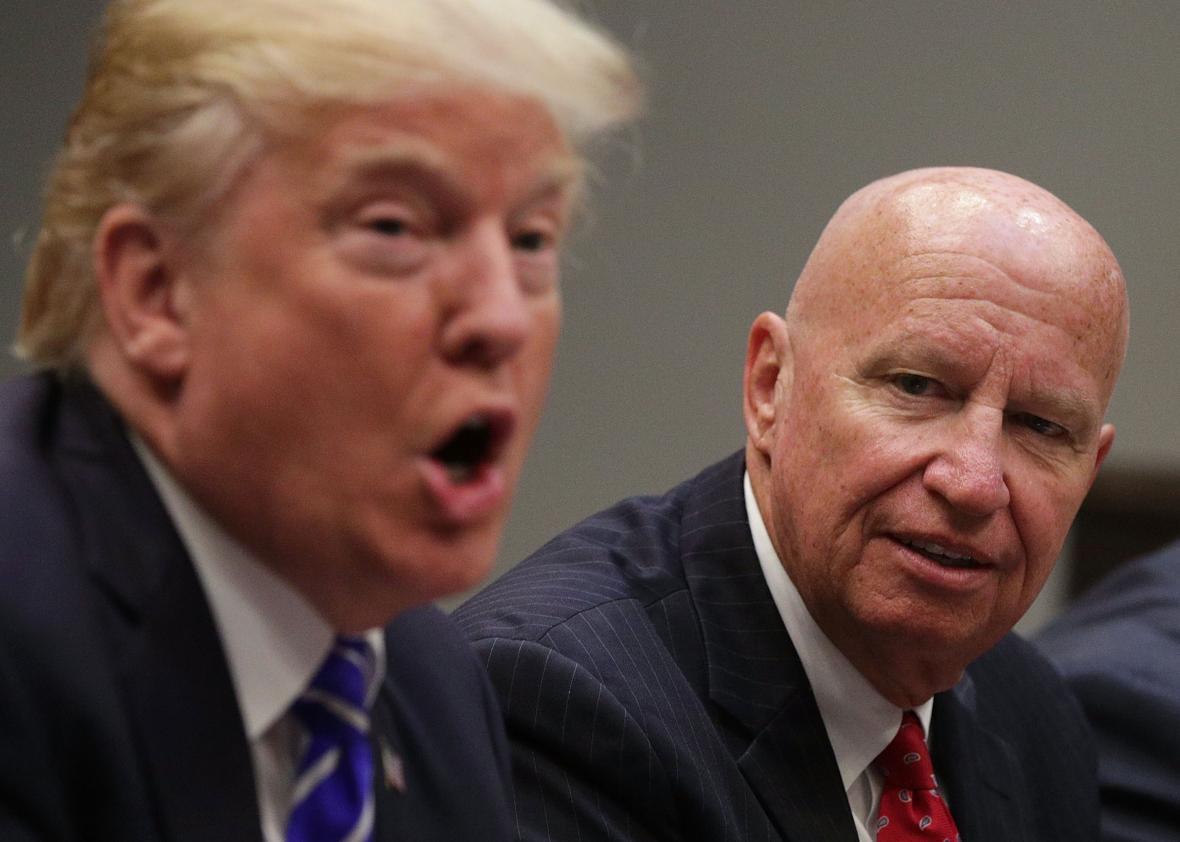After working through the night on the fraught policy and political implications of fitting a $5 trillion tax cut into a $1.5 trillion box, the Republicans on the Ways and Means Committee received a morning surprise from the White House. The president of the United States has an opinion:
It’s unclear whether the president saw Arkansas Sen. Tom Cotton doing a Fox News hit or spoke to Cotton personally, but tossing a repeal of Obamacare’s individual mandate into the mix has become Cotton’s pet project. Cotton, who typically ignores reporters in the Capitol, even held court Monday night to discuss it, saying that the change would save “$300 billion” in the 10-year window.
Cotton actually lowballs it. He seems to be referring to the Congressional Budget Office’s September 2015 estimate that found a repeal of the individual mandate would save $305 billion. A December 2016 estimate, though, found that it would save $416 billion.
It sounds counterintuitive that repealing the mandate would save money, since the mandate is a tax. But the mandate has always had a cascading effect on other expenditures. Most of the savings in the 2016 estimate—$279 billion—would come from Medicaid, as fewer people would sign up. Another nearly $100 billion in savings would come from fewer people utilizing government subsidies to purchase plans. Eliminating the mandate would also increase revenues, as CBO wrote last December, “because reductions in employment-based coverage would result in more taxable compensation for employees.”
The flip side to all this, of course, is that repealing the individual mandate on its own is terrible policy.
If you get rid of the mandate, CBO will score that as 15 million fewer people having health insurance, right off the bat. And since those who choose not to purchase insurance are likely to be younger, healthier people, it sends risk pools out of whack, spiraling up insurance costs for those who need it. Democrats didn’t put the individual mandate into the Affordable Care Act for kicks. It’s an integral part of making insurance markets work.
Congress’ top two tax writers, House Ways and Means Committee Chairman Kevin Brady and Senate Finance Committee Chairman Orrin Hatch, do not want to reopen the health care debate and risk those same tortuous politics sinking their tax bill, too. “What I don’t want to do is to add things that could again kill tax reform like health care died over there [in the Senate],” Brady said in a Tuesday radio interview. And Hatch told a reporter shortly after the president’s tweets on Wednesday morning that “he would prefer to stay out of the health care process because it’s tough enough to do a tax bill.”
Brady and Hatch are having enough trouble determining which tax breaks to curtail and which special interests they’re willing to piss off. They don’t need their tax bill to lower the insured ranks by 15 million and jack up premiums on top of that. It’s tough enough to take on the National Association of Home Builders and the National Association of Realtors, without them finding common cause with, say, the American Medical Association and America’s Health Insurance Plans to kill the bill.
It very much annoys Republican leaders in Congress when the president freelances in public like this, especially when they’re already past the brainstorming phase and down to the nitty-gritty. They would prefer to keep these sensitive discussions, whether over the mandate or changes to 401(k) plans, in private as they construct the bill. They want President Trump to be a reserved, loyal team player. Good luck with that, fellas.
